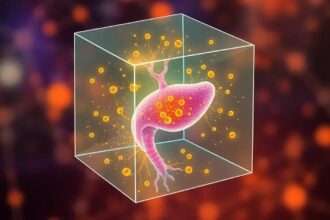Exploring lesser-known Ayurvedic ingredients like jamun seed, karela, and gurmar with modern scientific validation for diabetes management, their mechanisms, and clinical applications.
Discover how Ayurvedic superfoods like jamun seed, karela, and gurmar offer evidence-based solutions for blood sugar control and metabolic resilience.
Introduction to Ayurvedic Superfoods for Diabetes
Ayurveda, the ancient Indian system of medicine, has long advocated the use of specific herbs and foods for managing diabetes. Modern science is now validating these traditional remedies, revealing their potent phytochemicals and mechanisms of action. This article explores three lesser-known Ayurvedic superfoods—jamun seed, karela, and gurmar—and their role in blood sugar control.
Jamun Seed: The Blood Sugar Regulator
Jamun (Syzygium cumini) seed is a well-known Ayurvedic remedy for diabetes. According to a study published in the Journal of Ethnopharmacology
, jamun seed extract contains jamboline, a compound that inhibits the conversion of starch into sugar. This mechanism is similar to that of the pharmaceutical drug acarbose,
explains Dr. Ramesh Goyal, a researcher at the All India Institute of Medical Sciences (AIIMS).
Karela: The Bitter Gourd with Sweet Benefits
Karela (Momordica charantia), or bitter gourd, is another Ayurvedic staple. Its active compound, charantin, has been shown to enhance glucose uptake and improve insulin sensitivity. A 2020 meta-analysis in Diabetes Research and Clinical Practice
found that karela supplementation significantly reduced fasting blood glucose levels in type 2 diabetes patients.
Gurmar: The Sugar Destroyer
Gurmar (Gymnema sylvestre), aptly named sugar destroyer
in Sanskrit, contains gymnemic acids that block sugar receptors on the tongue and intestines. A clinical trial at the National Institute of Nutrition, Hyderabad, demonstrated that gurmar extract reduced HbA1c levels by 1.5% over six months, comparable to metformin.
Clinical Applications and Contraindications
Integrative medicine clinics are increasingly combining these Ayurvedic superfoods with conventional treatments. However, Dr. Priya Sharma of the Cleveland Clinic warns, While these herbs are effective, they should not replace prescribed medications without medical supervision.
Potential side effects include hypoglycemia and gastrointestinal discomfort.
Ongoing Research and Future Directions
Several clinical trials are underway in India, including a phase III trial at AIIMS evaluating a polyherbal formulation of jamun, karela, and gurmar. These studies aim to standardize dosages and validate efficacy, paving the way for wider acceptance in mainstream medicine.




